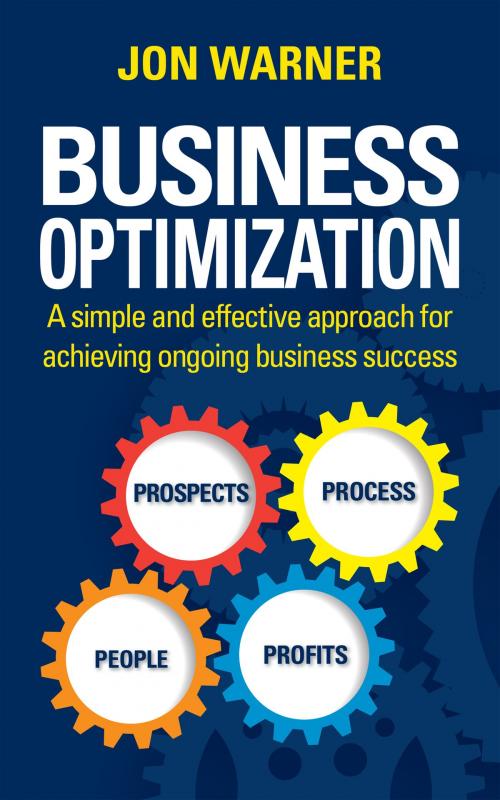Business Optimization
A Simple and Effective Approach for Acheiving Ongoing Business Success
Business & Finance, Business Reference, Business Communication| Author: | Jon Warner | ISBN: | 9781483532509 |
| Publisher: | BookBaby | Publication: | July 1, 2014 |
| Imprint: | Language: | English |
| Author: | Jon Warner |
| ISBN: | 9781483532509 |
| Publisher: | BookBaby |
| Publication: | July 1, 2014 |
| Imprint: | |
| Language: | English |
Hundreds if not thousands of business books have been written advising businesses on what to concentrate their attention in order to achieve long-term profitability. Suggestions include how best to prioritize focus on any one of a range of business areas including customers, employees, processes, quality, return on investment, etc. Moreover, organizations are often urged to not just focus on functional areas such as marketing, sales, operations, and finance but also to almost obsessively take measurements at every level of the organization for the purpose of more effectively increasing the chances of attaining their goals and targets. These prescriptions for success, some of which are valuable in part, all share one major flaw – they lack a coherent and holistic perspective. That is, the advice tends to pull mainly on only one or, possibly, two of the business levers and ignores other levers in the business that may also need small or large adjustments in order for organizational balance to be maintained. This book aims to break the mold by proposing a simple but powerful model describing the four major levers or realms present in any enterprise and what it means for these to be “optimal” with respect to overall and sustainable organizational health. “Prospects” is the first of the four realms because an organization needs to know where its future sales prospects are coming from. “Processes” are the means by which a business manages its internal operations so as to deliver the product or service it has promised its customers. “People” are the individuals and teams who work in the business, directly and indirectly, on a part- or full-time basis, to appropriately address the prospect, process, and profit realms so that they perform at their best. “Profit,” the final realm, determines whether or not a business not only has enough liquid capital to supply the products or services it sells to its customers but can also earn a profit.
Hundreds if not thousands of business books have been written advising businesses on what to concentrate their attention in order to achieve long-term profitability. Suggestions include how best to prioritize focus on any one of a range of business areas including customers, employees, processes, quality, return on investment, etc. Moreover, organizations are often urged to not just focus on functional areas such as marketing, sales, operations, and finance but also to almost obsessively take measurements at every level of the organization for the purpose of more effectively increasing the chances of attaining their goals and targets. These prescriptions for success, some of which are valuable in part, all share one major flaw – they lack a coherent and holistic perspective. That is, the advice tends to pull mainly on only one or, possibly, two of the business levers and ignores other levers in the business that may also need small or large adjustments in order for organizational balance to be maintained. This book aims to break the mold by proposing a simple but powerful model describing the four major levers or realms present in any enterprise and what it means for these to be “optimal” with respect to overall and sustainable organizational health. “Prospects” is the first of the four realms because an organization needs to know where its future sales prospects are coming from. “Processes” are the means by which a business manages its internal operations so as to deliver the product or service it has promised its customers. “People” are the individuals and teams who work in the business, directly and indirectly, on a part- or full-time basis, to appropriately address the prospect, process, and profit realms so that they perform at their best. “Profit,” the final realm, determines whether or not a business not only has enough liquid capital to supply the products or services it sells to its customers but can also earn a profit.















